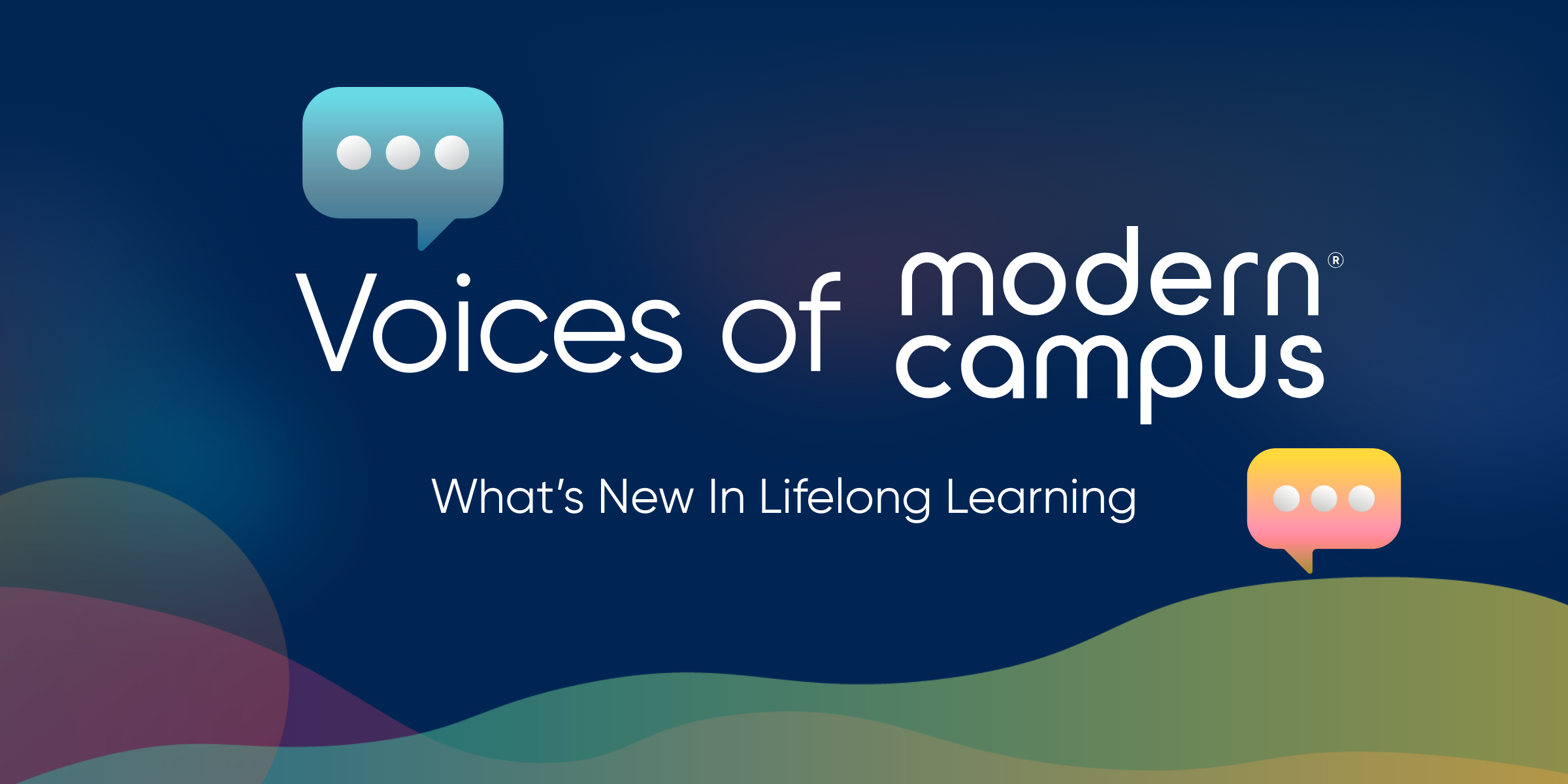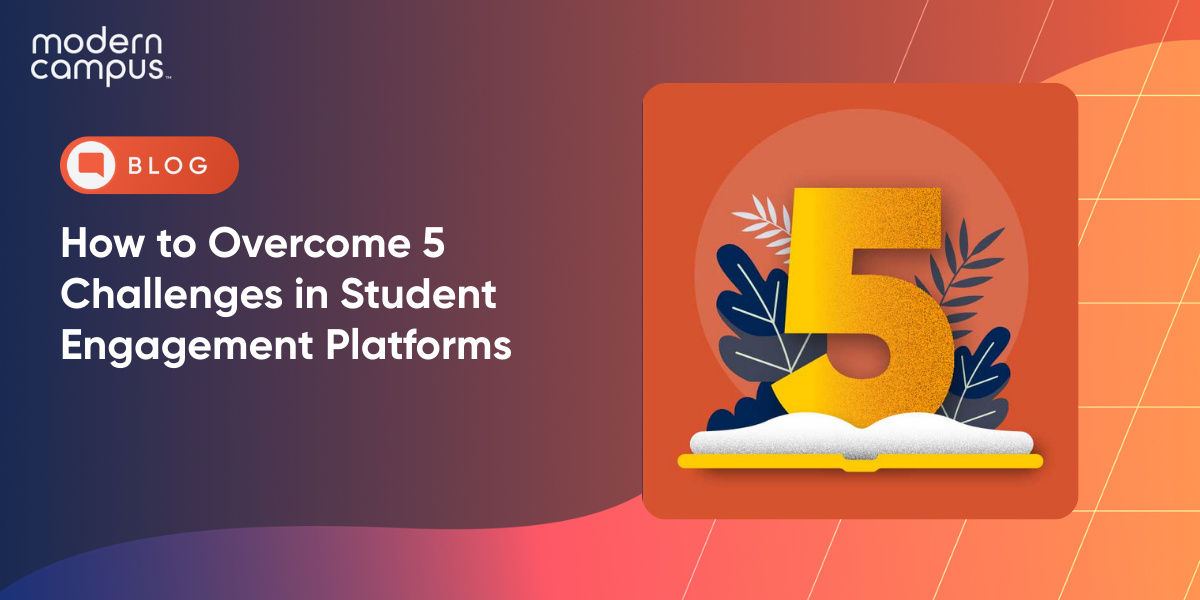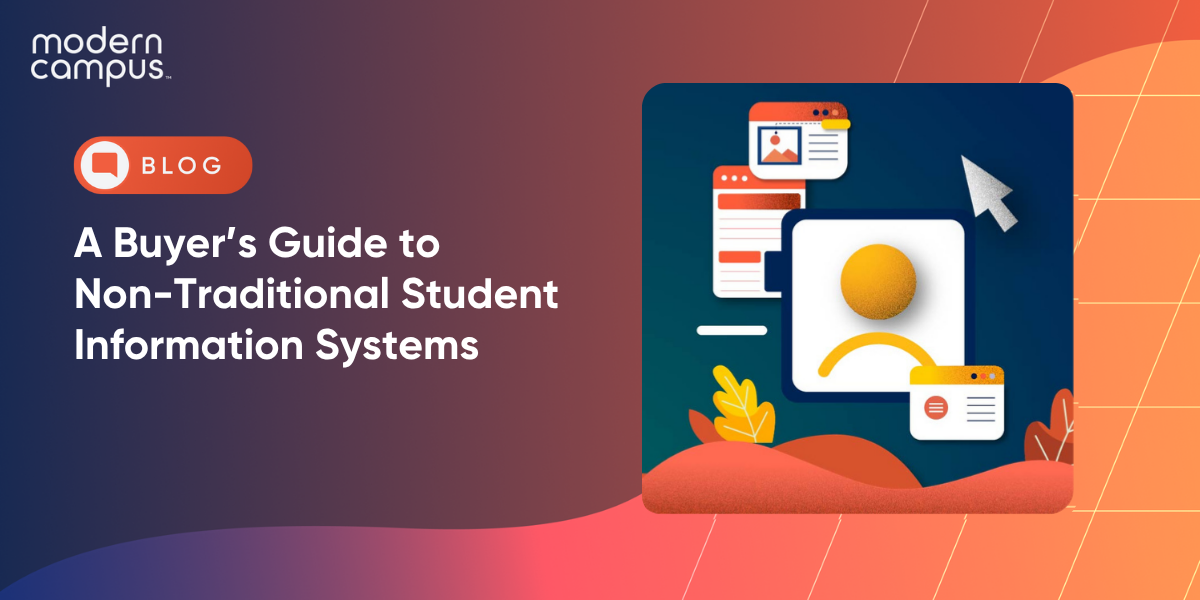Driving Student Loyalty and Engagement: How Student Affairs Can Influence Retention
Enrollment at Nicolet College has done something shocking since the start of the pandemic: it’s gone up.
The two-percent increase is particularly impressive in light of the nationwide trend; two-year public colleges have seen enrollment deflate by 14%.
There are many theories as to why Nicolet—which is Wisconcin’s smallest public technical college—has managed to fare so well. But Erika Warning-Meyer, Vice President of Enrollment and Student Affairs, believes individual student support is an essential part of the equation.
“I think by having the individual relationships we did with students and the ability to intervene and be upfront in the pandemic—reach out to them, support them, offer all of the resources that we received to support these students—helped us keep our retention,” she said during the 24th episode of Illumination by Modern Campus.
Putting The Individual Student First
Those relationships are built on a customer service mindset—which, Warning-Meyer acknowledges, may be foreign to many campus professionals.
“Higher education wasn't necessarily designed with the consumer mindset,” she said. “The last redesign in higher education was decades ago and these behemoths like Amazon and Walmart and all these companies that are setting service expectations for our students, they weren't there. So, we have to acknowledge that who we're serving has changed.”
To level up its student-as-consumer practices, Nicolet opened a Welcome Center that serves as a one-stop-shop for all enrollment needs. Its success relies on quality standards that put students first. For example, Warning-Meyer said that Welcome Center employers never aimlessly transfer students to another office; instead, they do a “warm handoff,” ensuring that the student will be well taken care of by the next person.
“It doesn't necessarily mean that, in two days, I can resolve every student situation,” she said, adding that it’s really about “letting them know that I heard them, I care about them.”
Before opening the welcome center, staff were also given professional development opportunities to boost their customer service skills. They were asked to reflect on their experiences as consumers—the good, the bad and the ugly interactions they’ve had with customer support staff, who are often anything but supportive. Based on those reflections, the leadership at Nicolet designed new positions to meet its student-centered philosophies.
For most colleges and universities, ensuring that students receive consistently fantastic customer service may seem like a pipe dream. The challenges of siloed departments, unstructured communication and high staff turnover can also make customer service a low priority. But Warning-Meyer understands that if boosting enrollment is an institution-wide priority, then customer service must be too.
“I think it all comes down to serving the individual and serving the student and making student-centered decisions,” said Warning-Meyer. “And I think when we talk about retention and completion efforts, it's really at the individual level and looking at the student’s identities. We need to do that at the front end to make sure that they're well informed in choosing our institution. And we need to keep doing that to make sure that they are supported while they're here.”
Student Affairs = More than Pizza Party Planners
Student affairs has been a key driver of Nicolet’s student-centered practices. Warning-Meyer knows that the friendly faces and co-curricular opportunities championed by student affairs aren’t just nice-to-have bonuses that reward students with free pizza parties and t-shirt giveaways; student affairs is crucial to Nicolet’s steady retention.
“The misconception about student affairs is that it's just the extra stuff … that it's not core in the student's educational journey—that without that stuff, the student could still get their degree,” she said. “We're not necessarily providing the technical education pieces. However, what we are providing is the support that so many of our students need.”
Warning-Meyer also spoke about student affairs being a defining feature of colleges and universities with which other options in today’s crowded education market cannot compete.
“Higher education is having a really interesting moment right now,” she said. “We have to change how we're educating students and how we're serving students. And I think what it's gonna come down to is that institutions need to stand apart.”
She explained that student affairs is really what helps an institution craft a unique brand in an era where anyone can log onto the internet to find the content they want to learn.
“We can make sure that it's an experience that supports that whole student. That's where student affairs comes in. We have to look at changing our business model from a transactional one.”
Students may enroll at their institutions for a specific degree plan but student affairs, Warning-Meyer believes, is what gets them to stay—even despite personal or global challenges.
“I think in the complicated world and the technology age we're living in, that's how people are gonna see the importance of student affairs,” she said. “Because without it, we're gonna not keep students.”
The Bottom Line
Warning-Meyer also understands that boosting retention is imperative to balancing the enrollment scales.
“Customer acquisition is a very scary cost, especially in higher ed,” she said. “It's much more economical to keep a student than it is to get a new one.”
And beyond the benefits to the institution’s bottom-line, campus experiences that support students more holistically are better at graduating confident, workforce-ready learners with future-proof skills.
“Something I'm interested in exploring more is that co-curricular learning component,” Warning-Meyer said. “Establishing opportunities for students to build the skills —your communication, your problem-solving, your decision-making skills—that no matter what industry you're in, you're gonna need to be able to do in some capacity. That's going to help you pivot when maybe your job pivots because of how technology is changing.”
Continuing education units can also reap the benefits of student affairs efforts, as alumni should be eager to return to an institution where they formed life-affirming relationships.
“If we can provide students with a good solid experience that supports them as a whole individual, then when they encounter the need for a job change or need help getting one more credential, that's where the continuing education and workforce development comes in,” Warning-Meyer said. “Or maybe they're in the seat at their employer where they can influence training opportunities. They can think back and say ‘I had a really great experience at Nicolet college, and I know people there care.’”
Listen to this episode
Listen on Apple Podcasts Listen on SpotifyRSS Feed
Last updated: January 7, 2022


